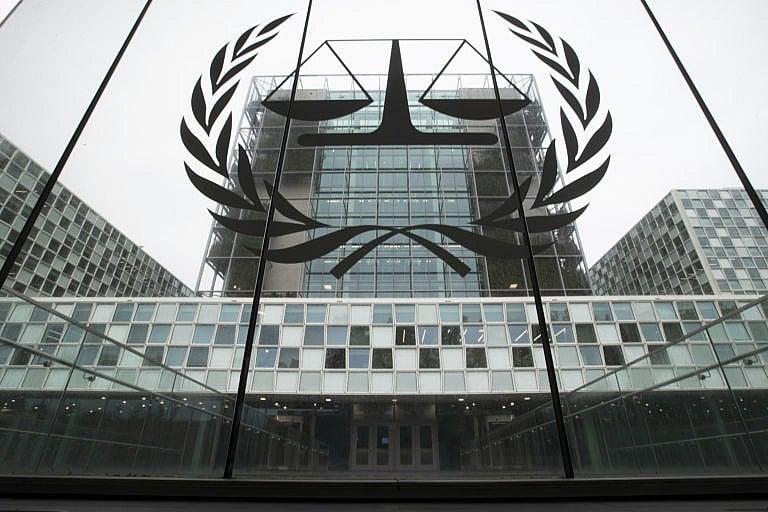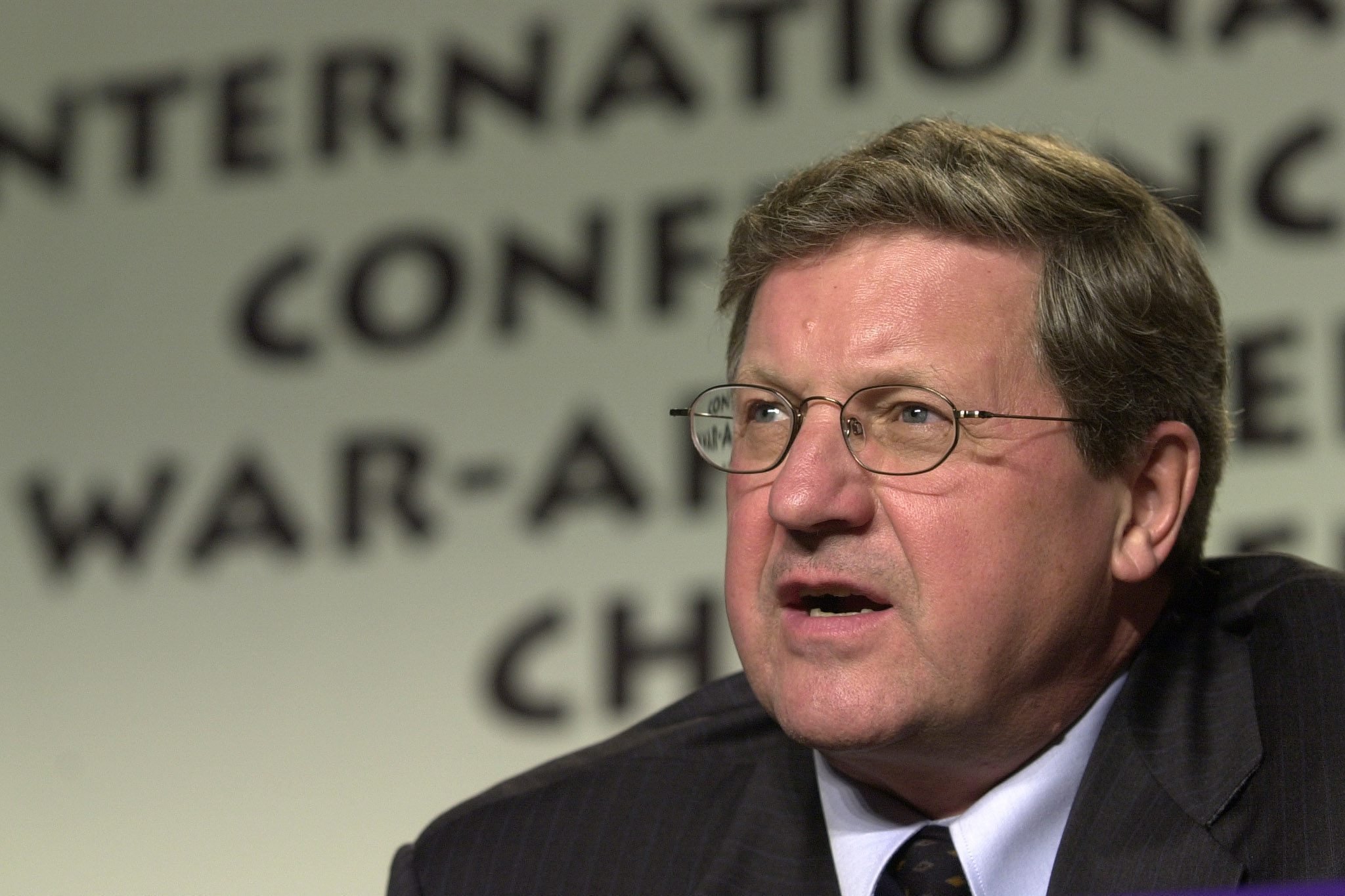Canadians are leading the push for a global anti-corruption court
It could go a long way to restore Canada’s reputation as a serious country, no longer the ‘snow-washing’ pariah of the G7

Justice leaders from Canada and around the world are backing the establishment of a global anti-corruption court, designed partly on the model of the International Criminal Court in The Hague, Netherlands, pictured. (Peter Dejong/AP)
Share
There are a number of reasons why Canada would seem an unlikely country to champion a groundbreaking international effort to rein in the global scourge of big-money corruption that United Nations Secretary-General António Guterres adds up to an annual worldwide cost of roughly $3.6 trillion in bribes, tax dodging, embezzlement and payoffs.
For one thing, the Trudeau government’s international reputation didn’t exactly emerge unscathed from the SNC-Lavalin affair, which resulted in two cabinet resignations and an ethics commissioner finding that Trudeau had improperly interfered with a massive corruption case in an effort to substitute criminal proceedings against a Liberal-friendly firm with a deferred-prosecution deal.
For a while there, the Organisation for Economic Co-operation and Development (OECD) had Canada on a watch list. SNC-Lavalin eventually plea-bargained its charge sheet down from six counts to a guilty plea on a single count of fraud, $280 million in fines and three years’ probation. The case involved $47 million in payoffs to Saadi Gadhafi, son of the Libyan dictator Moammar Gadhafi, in exchange for lucrative construction contracts in that blighted country.
READ: This year has taught us that democracy is not unshakeable
But Canada now appears on the cusp of taking a leading role in the establishment of an international anti-corruption court, borrowing in content and process from the International Criminal Court and the Ottawa land mines treaty. This could go a long way to restore Canada’s reputation as a serious country on the corruption and money-laundering front, no longer the “snow-washing” pariah of the G7.
Four former Canadian cabinet ministers have thrown themselves into the effort.
Three are Liberals: the former justice minister Allan Rock, a University of Ottawa law professor who also served as Canada’s ambassador to the UN; Lloyd Axworthy, a former foreign affairs minister who now serves as the chair of the World Refugee and Migration Council; and Ujjal Dosanjh, a former Liberal health minister who previously served a brief stint as the New Democratic Party premier of British Columbia. The former Liberal leader Michael Ignatieff, now president and rector of the Central European University in Austria, is among them, too.
The fourth former cabinet minister is Conservative Peter MacKay, who served as foreign affairs minister, defence minister and minister of justice during the Stephen Harper years.
The Canadians are among more than 100 international figures who have put their backs into the concept of an international corruption court and an enabling treaty, formally unveiled this week by the U.S.-based global non-profit Integrity Initiatives International, which reckons Canada is well-suited to take the lead.
Among the more prominent personalities backing the idea: Wolfgang Ischinger, chair of the Munich Security Conference; former President of Colombia and Nobel Laureate Juan Manuel Santos; former Tunisian president Moncef Marzouki; and former Swedish prime minister Carl Bildt. Among the jurists and international-law experts who have signed on are are Nobel Laureate and former Judge Shirin Ebadi of Iran; former UN Human Rights High Commissioners Navi Pillay and Zeid Ra’ad Al Hussein; and Bill Browder, pioneer of the Magnitsky sanctions laws that have been adopted by the U.S., the U.K. and Canada.
Unlike Magnitsky laws, which impose travel bans and assets seizures on corrupt officials and human-rights abusers, an international anti-corruption court would give global force and effect to the various anti-corruption statutes that almost all of the UN’s member states eventually put in place following the UN’s 2005 adoption of the Convention Against Corruption. But in dozens of countries where those laws are on the books, they aren’t enforced, either because the countries lack the capacity, or because the crooks doing the embezzling are also running the show. The UN does little beyond convening important-sounding sessions where diplomats adopt pre-drafted resolutions.
An anti-corruption treaty would provide a measure of uniformity among advanced democracies that are determined to root out dirty money in their own economies, while helping the victimized citizens of kleptocrats and Gadhafi-like regimes by freezing pilfered assets and money—like the bribes SNC-Lavalin paid to Moammar Gadhafi’s son, and the yacht SNC-Lavalin bought for him. The proceeds could then be held in trust for the victims of the world’s globe-trotting strongmen.
Until this year, Canada was the only Five Eyes country without any commitment to a publicly accessible “beneficial ownership registry,” that is, a national registry that requires corporations to identify who their actual owners are. But that’s changing fast. While short on details, the long overdue federal budget, unveiled in April, contained a pledge to establish a publicly accessible federal beneficial ownership registry.
This is something Transparency International (TI) Canada has spent years fighting for. The Quebec legislature is considering something similar. British Columbia—which has been fiercely critical of Ottawa’s complacency in the face of a racket involving hundreds of millions of dollars laundered from China through B.C. casinos into Vancouver real estate—has brought in a beneficial ownership registry covering real estate.
The work involved in getting Canada up to speed has taken on some urgency lately, especially now that the G7 foreign ministers have identified corruption as a “pressing global challenge” that will be the focus of the G7’s September ministerial meetings. And on June 3, U.S. President Joe Biden identified the fight against corruption as a core U.S. national security interest: “Corruption erodes public trust; hobbles effective governance; distorts equitable markets; undercuts development efforts; contributes to national fragility, extremism, and migration; and provides authoritarian leaders a means to undermine democracy worldwide.”
So is Canada up to the task?
“We’ve been so behind for so many years. We’re taking a number of leaps and bounds that hopefully can put us in a much better position,” says James Cohen, TI Canada’s executive director. As for the international anti-corruption court idea, Cohen says he’s behind it. “If it turns out that Canada is all of a sudden taking anti-corruption seriously as a key foreign policy issue, it would be very welcome.”
But the devil’s in the details.
One of Canada’s sturdiest world-stage efforts in recent years resulted in the UN’s adoption of the Responsibility to Protect (R2P) doctrine, which came into effect around the same time as the Convention Against Corruption. R2P was intended to unite the UN’s member states in efforts up to and including military intervention to prevent genocide, war crimes, crimes against humanity and ethnic cleansing.
The devil in the doctrine’s details was its deferral of final-say authority to the UN Security Council, where veto-holders Russia and China are generally disinclined to allow even genocide to warrant international action. The lesson here is that, sometimes, you just have to work around the UN to avoid the paralysis at the UN Security Council.

That’s why Axworthy had harnessed a global campaign led by civil-society organizations outside the UN framework, successfully culminating in the 1996 conference in Ottawa that eventually produced a global treaty banning land mines. Almost all UN member states eventually signed on, with the notable exception of Security Council veto-holders Russia, China and the United States.
Axworthy’s organizational model has been taken on by the legendary corruption-fighting Massachusetts federal court judge Mark Wolf, the chairman of of Integrity Initiatives International. In the U.S., Judge Wolf is best known for busting up the FBI’s 1990s-era collaboration with the notorious Boston mobster Whitey Bulger, and in 2011 he sent the former speaker of the Massachusetts House to prison for eight years on charges of extortion and fraud.
The plan is to mobilize public-interest organizations, public opinion and prominent figures to persuade a critical mass of liberal democracies to sign an international anti-corruption treaty.
“The kleptocrats who steal these fortunes, they don’t want to keep their money in their own countries,” says Judge Wolf. “That’s why we really need leadership from a country like Canada.”
Canada doesn’t have the same kind of baggage the United States carries around. But this country does have a knack for pulling together other rule-of-law countries, as it did when Axworthy led the way with the “Ottawa ban” on land mines. “So, ideally it would be Canada that takes the lead,” Judge Wolf tells me. “That’s our hope. Canada really is of crucial importance.”
This article appears in print in the July 2021 issue of Maclean’s magazine with the headline, “How to try the world’s biggest crooks.” Subscribe to the monthly print magazine here.